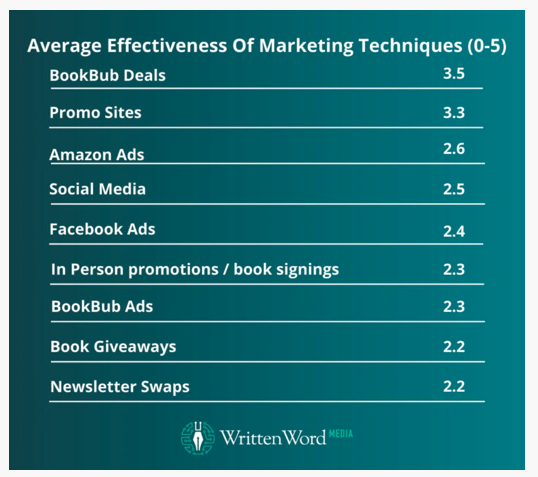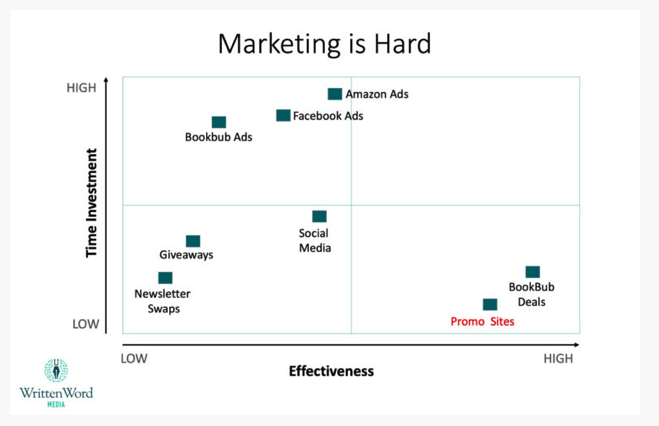It’ll help you organize your thoughts during these difficult times, and may help educate future generations.
How to Rescue Your Endangered Book
You’ve kinda/sorta finished your book/first draft/whachamacallit.
In drastic cases, it could even be an outline that’s gone off the rails and landed in a ditch.
But.
Your original brilliant idea is drowning in a sea of ugly clutter.
There are dust bunnies in the corners.
An overflowing laundry hamper in the hall.
First chapter is suffering from ring-around-the-collar.
Inciting incident is ho-hum and forgettable (even by you).
Plot has more holes than plot.
Characters have mutated into unrecognizable forms (and you’re not writing sci-fi or alien invasion fiction).
Verbs are passive, the nouns flabby and adjectives rust in the front yard.
Ending limps to a conclusion.
You’re asking yourself: Did I write that?
What are you in it for?
Loads of people dream of becoming celebrated authors, seeing their books prominently displayed in bookstores and airports across the globe. It’s the fantasy equivalent of moving to Hollywood and becoming the next Julia Roberts, Scarlett Johansen, or Jennifer Lawrence; something that only happens for one person out of every hundred thousand hopefuls.
After writing my first book, I queried a slew of fancy New York City agents—only the best for me and my future literary stardom.
After receiving enough rejection letters to wallpaper my powder room (distastefully), I hooked someone. My agent submitted my romcom masterpiece to ten major publishers and one of them bit. Sadly, before my editor signed on the dotted line, she switched genres and moved onto something less mainstream like eastern religion or astrophysics—either way, it was as far away from chick-lit as you could get. After months of excitement, my dream was dashed.
Despondent, I put my publishing pursuits on hold to try to get on with the business of starting a family. Four miscarriages and two babies later, I was ready to get back at it when my husband was diagnosed with stage-four tonsil cancer. Once we got him stabilized, I had a new drive to see my work in print. Life was short and I resolved to achieve my goal sooner rather than later. For me that meant self-publishing.
Read the rest of the story from Whitney Dineen at Women Writers, Women’s Books
Build Your Book Brand
We all want more book sales.
To that end, know that the number one step in all sales is to generate curiosity.
So, how do you do that?
One way to do that is to create your author branding statement: a concise, one-sentence description of your book or of your body of work.
Read the article by Beth Barany at The Book Designer
Get More Mileage From Your Book's Press Release
If you signed up for our Sell Sheet Plus package, you also received a custom press release. Mission Point Press sends the press release out to your state’s media, bookstores and libraries. Here’s an article about how to get more bang for your buck: https://www.thebookdesigner.com/2020/02/make-your-books-press-release-work-harder/
From The Book Designer
Self Published Success Story
Adjunct, a novel by Geoff Cebula, is a love letter to academia, a self-help book, a learned disquisition on an obscure genre of Italian film, and a surprisingly affecting satire-cum-horror-comedy. In other words, exactly the kind of strange, unlucrative, interdisciplinary work that university presses, if they take any risks at all, should exist to print. Given the parlous state of academic publishing—with Stanford University Press nearly shutting down and all but a few presses ordered to turn profits or else—it should perhaps come as no surprise that one of the best recent books on the contemporary university was instead self-published on Amazon.
A link to the review of this self-published book at the New York Review of Books
Writing Memoir
Truth in life doesn’t automatically morph into truth on the page. And living people don’t necessarily come to life in print. It takes creativity – hence the term “creative non-fiction”.
It’s a delicate balance. Too much artifice – flashy metaphors and show-off prose – and you risk losing the reader’s trust.
Loglines and Taglines
First, some vocabulary in case you need it:
A Logline gives the gist of your book in a sentence. It tells something about the main character, the conflict, and the stakes. So, the WHO, the WHAT, and the WHY of your story.
When someone asks you what your book is about, you’ll probably give them your logline.
A Tagline is a catchphrase that sucks the reader in. It’s the idea behind your book. AKA: the hook. It might be on the front cover of your book.
The tagline’s job is to evoke emotion.
Look at Competing Titles in Your Marketing
Competing book titles can be lucrative references for cover design, book length, and choosing your categories and keywords. They’re also helpful in deciding how to price your book and determining the best strategies for marketing to potential buyers in your genre or topic, and more!
Adding Cinematic Details to Your Novel
Some interesting tips from Susan Lakin at Medium:
3. Add background noise
Consider what sounds are important in this scene. They could be ordinary sounds that give ambiance for the setting, but also think of some sound or two that you can insert into the scene that will stand out and deepen the meaning for your character.
Church bells ringing could remind a character of her wedding day as she heads to the courthouse to file divorce papers. Birds chirping happily in a tree next to a grieving character can sound like mocking and deepen the grief.
4. Color your scenes
Colors can be used for powerful effect. Different colors have strong psychological meaning, and filmmakers often use color very deliberately. Red implies power; pink, weakness. You can “tinge” your scenes with color and increase the visual power. Color can also add symbolism to an object or be a motif.
Want to learn more? A great book to read is Patti Bellantoni’s If It’s Purple, Someone’s Gonna Die.
Backstory in Fiction
The way you integrate the backstory often makes or breaks your writing.
Stephen King recommends getting to the backstory as early as possible, and I mostly agree with that.
If there’s something important about your protagonist’s backstory that will play a role in the narrative, don’t introduce that information on page 312.
Don’t introduce it on page 2 necessarily either, but do introduce it early on. Have the reader thinking about that piece of the character’s backstory, even it’s just at the back of his or her mind. Doing so will allow the big moment that happens later to have a satisfying payoff.
"Kill Your Darlings"
“Kill your darlings” is one of the most repeated bits of writing advice out there, but how do you know which darlings to murder? You need to decide what to cut from a novel, but it can be tricky.
Word counts matter. They don’t matter endlessly, but an overly long novel will adversely impact your odds of finding traditional publication, especially for a debut.
And even if you’re self-publishing, no one wants to slog through a novel from an author who never once pressed the “delete” button in the course of writing a 7,000 page tome.
If you are starting with a more average word count it’s still helpful to tighten things up as much as possible, so this post is for you too.
Casting Call for Characters
Stumble onto many authors’s Pinterest pages, and you’re likely as not to find a folder of “face casts” — photos of models or actors that resemble their characters.
I imagine that, to some, this sounds like a silly fantasy — authors and fans trying to cast a movie that hasn’t been written or optioned and is likely to never exist.
To others, it might sound like lazy characterization — the writer didn’t describe the character well enough on the page, so now they’re forced to resort to using photos of actors to describe their characters.
To the less uptight, it might simply sound like some good, writerly fun to distract from the hours of prose and crippling isolation. There’s definitely an aspect of that, I’m not going to lie.
An interesting idea, procrastinating or not. Read about it at Medium.
Super-bestsellers, Bestsellers … and everything else
A publisher at a major house agreed that, to an extent, publishers have contributed to the gap between the top sellers and those below. With social media offering a variety of ways to promote titles that are selling, publishers usually put more resources behind books that are succeeding in order to maintain momentum. As these books get the lion’s share of the houses’ focus, other titles are left to find audiences on their own.
How to say "The End"
It all has to do with emptying an heuristic:
Heuristic — An approach to problem-solving, learning, or discovery that employs a practical method, not guaranteed to be optimal, perfect, logical, or rational, but instead sufficient.
Writing an Author Bio
If you ask a hundred literary agents whether an author’s personal biography matters, you’ll get a hundred different answers.
Some literary agents might skip straight to an author’s bio when reading a query; others will barely look at it at all. But ultimately, most literary agents would agree on one thing: What’s most important in a query letter is the strength of the book summary.
Which simply means: What matters most is your writing.
Writers Agree: Marketing Is Hard
On Marketing
Finding #5: Promo sites are the most effective marketing channel
The one area of agreement in the survey was on which marketing channels were effective. Promo sites (Bookbub, Freebooksy, Bargain Booksy, etc.) were ranked as the most effective marketing tactic by a significant margin. They scored significantly higher (3.4) compared to Amazon Ads (2.6) and Social Media (2.5), the next highest-ranked marketing techniques.
There was also a resounding agreement that marketing is hard and is the one area where all authors wanted the most help.
Above we have plotted the effectiveness of a marketing channel against the time investment required for each marketing channel. Featured deals on Promo sites were ranked as the top two for a reason: they are both time-efficient and effective time-intensive. That is, they get good results without much labor. Plugging your book into a promo site, selecting when you want the promo to run, and logging off is easy. Paid marketing channels (Facebook ads, Amazon ads, Bookbub ads) are highly time-intensive as authors need to spend time learning how to use the platform, then spend time setting up the ads, and spend additional time to monitor the ads every day. All of those tasks take hours away from writing. For many authors, being thoughtful about where to spend their time marketing can be a game-changer.
How to level up
Set a specific number of hours you will spend marketing.
Start with the most effective marketing channels first.
Identify which marketing tactics you have the skill and desire to learn and pick one.
For all authors, it makes sense to spend time in the most efficient way possible. Granted, one technique may work better for one author over another, but our chart above can be a guide on where to start.
Read more at Written Word Media
Do's and Don't for Submitting to Lit Journals
Most literary magazine editors try to keep an open mind when reading submissions of poems, short stories, and essays. But writers who make common submission strategy mistakes might just find their manuscripts are quickly dismissed with a “thanks but no thanks” rejection letter. Here are the crucial faux pas to avoid.
Midwest Author Advises Patience
There are various bruising anecdotes about William Kent Krueger’s career arc as a novelist that will ring true to many a struggling writer: the early rejections by literary agents (there were 36); the paucity of crowds on those first bookstore appearances (where, he recounted, it wasn’t unusual for the audience to consist of “the bookseller and the bookseller’s cat”); the dreaded label as a midlist author. Though not necessarily a household name, Krueger is very much a success in the eyes of his longtime publisher, Atria. He’s just released his 20th novel with the Simon & Schuster imprint, This Tender Land (which debuted at #6 on PW’s hardcover frontlist fiction bestseller list), and, according to the publisher, more than two million copies of his books are in print. His story is an example of what publishers claim they want to do but find it increasingly hard to accomplish: grow an author.
Make some lemonade from this statistic
Netflix SPENDS more annually for content than Penguin MAKES in a year:
Netflix, Wischenbart pointed out, spends in excess of $10 billion on content development every year, compared with the global revenue of Penguin Random House, which comes in at approximately $3 billion to $4 billion a year.


